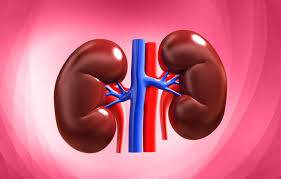Understanding the Leading Causes of Kidney Failure
Kidney failure, also known as end-stage renal disease (ESRD), occurs when the kidneys lose their ability to filter waste and maintain the body's fluid and electrolyte balance. This life-threatening condition often requires dialysis or a kidney transplant to manage. While kidney failure can have various causes, understanding the five most common contributors is critical for prevention and early intervention. These include diabetes, high blood pressure, chronic kidney infections, genetic disorders, and the misuse of medications or toxins.
The most prevalent cause of kidney failure is diabetes, particularly Type 2 diabetes. Elevated blood sugar levels over time damage the blood vessels in the kidneys, impairing their ability to function. This condition, known as diabetic nephropathy, often develops silently over years, emphasizing the importance of blood sugar control and regular kidney function tests for diabetics. Similarly, high blood pressure is another leading cause. Chronic hypertension exerts excessive force on the small vessels in the kidneys, reducing their capacity to filter blood efficiently. Together, diabetes and hypertension account for nearly two-thirds of all kidney failure cases globally.
Chronic kidney infections and urinary tract infections (UTIs) that ascend to the kidneys can also lead to scarring and permanent damage. Conditions like pyelonephritis, when untreated or recurrent, can gradually impair kidney function. Genetic disorders, such as polycystic kidney disease (PKD), are another significant contributor. PKD causes fluid-filled cysts to develop in the kidneys, disrupting their normal structure and function. Since these conditions often have a hereditary component, individuals with a family history should seek early screening and genetic counseling to mitigate risks.
Finally, prolonged misuse of certain medications and exposure to toxins can damage the kidneys over time. Nonsteroidal anti-inflammatory drugs (NSAIDs), some antibiotics, and recreational drugs are notorious for their nephrotoxic effects. Additionally, chronic dehydration, heavy metal exposure, or excessive consumption of supplements without medical supervision can strain the kidneys. Raising awareness about these risks, combined with routine medical checkups, is essential for prevention. By addressing these five key causes, individuals can take proactive steps toward preserving kidney health and reducing the global burden of kidney failure.



No comments yet
Be the first to share your thoughts!